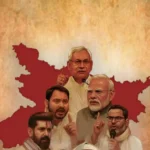Table of content
- Introduction: A Political Thriller for Our Times
- The Premise: Power, Secrets, and Survival
- Suranne Jones: A Performance That Commands the Screen
- Julie Delpy: A Force of Grace and Strategy
- Chemistry Between the Leads: Tension and Trust
- Storytelling Style: Twists That Keep You Guessing
- Themes: Politics, Power, and Human Vulnerability
- Cinematic Choices: Visual Language of Suspense
- Supporting Cast: Strong Pillars Around the Leads
- The Global Relevance of the Narrative
- Pacing and Structure: A Thriller That Rarely Lets Up
- The Emotional Core: Humanity Amidst the Chaos
- Comparisons With Other Political Thrillers
- Audience Reactions and Early Reception
- Strengths and Weaknesses of Hostage
- The Future: Potential for Continuation or Expansion
- Conclusion: A Compelling Thriller with Staying Power
In an era where political dramas and thrillers have become increasingly relevant to global audiences, Hostage stands out as a series that captures both the urgency of power struggles and the humanity hidden within them. Anchored by powerhouse performances from Suranne Jones and Julie Delpy, the show doesn’t just rely on its premise of politics and danger — it digs deep into the moral choices, psychological battles, and emotional landscapes of its characters.
The Premise: Power, Secrets, and Survival
At its core, Hostage tells the story of a high-stakes crisis where politics collides with personal morality. The series sets its foundation on a volatile scenario: a political leader and her team are held in a delicate balance where survival depends as much on diplomacy and wit as it does on brute force. This isn’t a simple hostage situation in the traditional sense — instead, the narrative layers political intrigue, personal betrayals, and moral dilemmas into a tense and unpredictable thriller.
Suranne Jones: A Performance That Commands the Screen
Suranne Jones has long been celebrated for her ability to carry intense roles, and in Hostage, she delivers one of her most commanding performances yet. Her portrayal of a political figure caught in an impossible situation is marked by steel and vulnerability in equal measure. Jones brings credibility to every scene, whether she’s negotiating under pressure, facing betrayal from trusted allies, or grappling with her own doubts. Her intensity ensures the audience remains glued to her character’s journey.
Julie Delpy: A Force of Grace and Strategy
If Suranne Jones provides the fire, Julie Delpy brings the quiet storm. Known for her nuanced performances, Delpy embodies a strategist who thrives in the shadows of power. Her role is less about loud declarations and more about precise calculations — she is the chess player, always thinking three steps ahead. Delpy’s performance resonates because of its subtlety; she can deliver a chilling blow with a whisper rather than a scream. Together with Jones, she provides the series with a layered duality that feels both human and captivating.
Chemistry Between the Leads: Tension and Trust
One of the most compelling aspects of Hostage is the dynamic between Jones and Delpy. Their relationship is complex, shifting constantly between collaboration, mistrust, and an almost reluctant respect. The push-and-pull between their characters provides some of the most electrifying moments in the series, reminding viewers that in politics — and in survival — alliances are rarely straightforward.
Storytelling Style: Twists That Keep You Guessing
The series thrives on unpredictability. Just when the audience feels they understand the trajectory, Hostage veers into uncharted territory. Writers weave in betrayals, unexpected alliances, and revelations that force viewers to reassess everything they thought they knew. Unlike thrillers that rely purely on shock value, these twists feel earned, grounded in character motivations rather than convenience.
Themes: Politics, Power, and Human Vulnerability
Beneath its surface as a thriller, Hostage is deeply thematic. It questions the price of power, the weight of secrets, and the compromises individuals make when cornered. What makes the narrative resonate is how it humanizes these larger themes — instead of presenting leaders as untouchable figures, the series reveals their fragility, their fears, and their personal sacrifices.
Cinematic Choices: Visual Language of Suspense
The direction and cinematography of Hostage contribute greatly to its atmosphere. Dimly lit corridors, sharp contrasts of light and shadow, and carefully choreographed camera movements heighten the tension at every step. The visual language mirrors the uncertainty of the characters’ situation, where safety is always just out of reach. The pacing of the visuals ensures that the suspense lingers, making the audience feel as if they too are trapped in the claustrophobic environment.
Supporting Cast: Strong Pillars Around the Leads
While Jones and Delpy carry the heart of the series, the supporting cast provides the essential framework. From political aides torn between loyalty and survival, to antagonists whose motives blur the line between personal vengeance and ideological warfare, the ensemble enriches the narrative. Each supporting character contributes a thread to the tapestry of tension, ensuring the story never feels hollow.
The Global Relevance of the Narrative
Though set in a specific political context, Hostage carries themes that resonate universally. In an age of fragile democracies, power struggles, and rising distrust in leadership, the show feels alarmingly timely. Its narrative doesn’t limit itself to one geography; instead, it reflects the anxieties of audiences worldwide who see echoes of real-world politics in its fictional conflicts.
Pacing and Structure: A Thriller That Rarely Lets Up
Thrillers often stumble by dragging in the middle or rushing through climaxes. Hostage avoids this pitfall with careful pacing. Each episode builds deliberately, layering tension without overwhelming the audience. By balancing high-octane sequences with quieter, character-driven moments, the series maintains momentum while ensuring emotional investment.
The Emotional Core: Humanity Amidst the Chaos
What elevates Hostage above many political thrillers is its emotional depth. Beyond the strategies and betrayals, the show asks: what does it mean to be human in the face of extreme pressure? Characters grapple with their families, their moral codes, and the haunting possibility of failure. This emotional core ensures that viewers don’t just watch the crisis unfold — they feel it.
Comparisons With Other Political Thrillers
Inevitably, Hostage will draw comparisons to classics like House of Cards or Bodyguard. While it shares the DNA of these shows — corruption, power, survival — it distinguishes itself through its strong female leads and the deeply personal stakes at play. Rather than focusing solely on grand political games, Hostage narrows its gaze to the intimate choices that ripple outward into larger consequences.
Audience Reactions and Early Reception
Early audiences have responded positively to the series, praising its gripping narrative and the powerhouse performances of Jones and Delpy. Many highlight the series’ ability to keep viewers guessing until the very end, while others appreciate its balance between political intrigue and emotional storytelling. Some criticism has emerged around moments where the script leans on familiar thriller tropes, but these are overshadowed by the overall strength of the show.
Strengths and Weaknesses of Hostage
The greatest strength of Hostage lies in its performances and storytelling confidence. Jones and Delpy bring characters to life with raw power, while the writers weave a plot that rarely feels predictable. The visuals and pacing add to its immersive quality.
On the weaker side, some viewers may find the heavy political jargon and layered subplots occasionally overwhelming. A few narrative beats also echo well-worn thriller territory, but the execution ensures they remain engaging.
The Future: Potential for Continuation or Expansion
Given its strong reception, speculation has already begun about whether Hostage could expand into further seasons or spin-offs. While the central storyline reaches a satisfying conclusion, the characters and their world are rich enough to support continuation. The show’s global appeal could easily make it a lasting franchise in the thriller genre.
Conclusion: A Compelling Thriller with Staying Power
Hostage is more than just another entry into the crowded world of political dramas. It is a testament to what happens when gripping storytelling meets powerhouse performances. Suranne Jones and Julie Delpy don’t just anchor the series — they elevate it, making it a must-watch for anyone drawn to thrillers that combine suspense with humanity. With its timely themes, emotional resonance, and relentless tension, Hostage stands as one of the most compelling political dramas in recent years.
Also Read…Honouring Sidhu Moosewala: A Global Tribute Tour in Hologram Form












Leave a comment